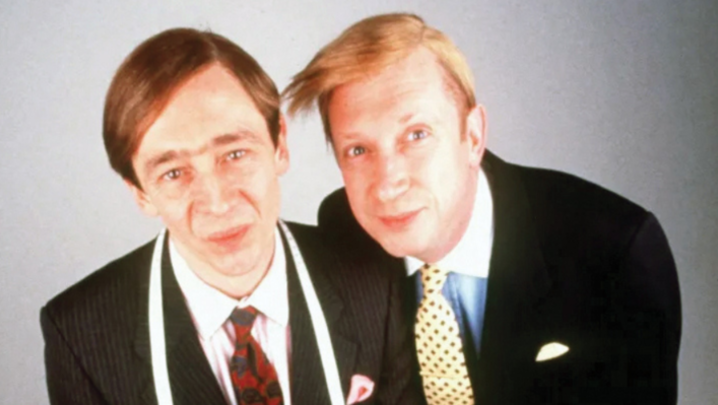Book review: Maggie Brown gives us her commentary on The Day the Music Died: A Life Lived Behind the Lens, by Tony Garnett.
Tony Garnett, now 80 and still a republican socialist, arrived with a bang as a standout producer of television and film drama in the 1960s. He made his mark with powerful, campaigning programmes such as The Wednesday Play’s Up the Junction and Cathy Come Home, which exposed the horrors of backstreet abortions and family homelessness.
He reinvented himself in the 1990s as an independent producer, running World Productions. There, he backed new talent with the edgy Between the Lines, The Cops and, most famously, This Life. The latter was a frank drama about the personal lives of young lawyers. Written by the then-unknown Amy Jenkins, it made a star of Daniela Nardini. Jenkins landed the role after she told him that she hated the Beatles and the 1960s.
Garnett formed a lasting friendship and professional rapport with director Ken Loach. Their most famous collaboration was Kes, which, in common with a lot of Garnett’s work, mixed well-known actors alongside unfamiliar faces and gritty location shooting.
Kes, released in 1969, was shot in Barnsley and was a spectacular success. The American studio boss Eric Pleskow, who backed it, hated the regional accents, and asked for subtitles. He remarked at a preview: “I would have preferred it in Hungarian.”
Garnett sold his house to help make Kes. At the premiere in Doncaster, he attacked Roy Mason, MP for Barnsley, whom he didn’t want to see there: “He was an ex-miner, a right-wing Labour turncoat who became Northern Ireland secretary. I despised his politics, his betrayal of his own people. I was out of order. Not for the first time.”
In an interview (with me) in 2013, he revealed how, aged five, his life had been upturned when his mother died of a botched abortion over Christmas in 1941, during a night-time bombing raid on Birmingham. His heartbroken father, who had been at work, committed suicide 19 days later.
This book is the fuller story, about how his painful childhood subsequently inspired his work and creative decisions. Up the Junction was broadcast in 1965 as a bill to legalise abortion was going through Parliament. It was accompanied by Garnett’s GP listing the avoidable deaths caused by criminalisation.
Back then, Garnett told no one, not even Loach, about his childhood. “I wanted no more unnecessary deaths or orphaned children,” he says in this memoir. “Those shocked by my ruthless deception at the BBC had no idea of its roots. I would have cut off my arm to get that in front of the public.”
After being orphaned, Garnett and his brother were taken in by separate branches of the family. He lived thereafter in a state of frozen watchfulness. He says that he survived by immersing himself in books. He won a grammar school place and discovered an ability to act.
The memoir also doubles up as an act of homage to the lost culture that shaped him, the great strengths of the matriarchs and verbally laconic Brummie “mechanicals”. These were skilled toolmakers, men who loved the quiet escape of fishing at the weekend, Aston Villa and, by the 1950s, their motor cars.
Garnett took a degree in psychology at University College London, a cover for a burgeoning career as a jobbing actor: a part in Dixon of Dock Green went down best with his family.
Yet, just when his life was on the crest of a wave, further tragedy struck. The actress Topsy Legge, who became his first wife, was on the verge of stardom in the film version of Billy Liar when she became mentally ill. Her treatment was a barbaric regime of electric-shock therapy and drugs; her experience inspired his 1971 film, Family Life. He says: “Topsy had brought me back to life, so I shut down again.”
After suffering from depression, Garnett was picked up by the BBC and there he embarked on the career as a drama producer that made his name. The searing brand of screen realism that he stood for was backed up by steeliness and determination to ensure that his plays reached their intended audience.
Although he had dealings with the Trotskyist Gerry Healy – who “threw me when he said I was important because I was the Goebbels of the movement” – he never fell for the Workers Revolutionary Party, as some of his acquaintances did.
He writes of his “suspicion of grand, all-encompassing, continental theory and a liking for the tradition of English scepticism. It was not that I rejected theories or ideologies, but I wanted them tested against evidence.”
He goes on to say: “I felt that the reality was that Gerry and the cabal decided everything. I’ve seen this in many organisations, from the Labour Party to the BFI, but it seemed suffocatingly tight under Gerry.”
Garnett describes his approach to his work in the following passage: “The only interesting landscape is the human face. I’m fascinated by three sets of connections: conflicts within an individual; face-to-face negotiations, that is, the personal politics of small groups; and the major forces in society, which affect everyone. Complex stories are made from the relationship between all three”.
Unsurprisingly, this pragmatic realist writes that he finds conventional screen drama traditions of special effects and fantasy boring. Ironically, he sat out Thatcherism in Hollywood. Garnett didn’t thrive there – a second marriage broke down – but the experience was an education: “Alan Parker joked that I was the only person he knew who could produce four movies in Hollywood and make no money.”
There is much to savour about his television career. He recounts his friendship, a meeting of minds, with Sydney Newman, the Canadian head of BBC Drama, who acted as a father figure to him in the 1960s.
Garnett casts a cool eye over his BBC bosses: “I worked in secret, never telling management what I intended to produce, or I lied about it.”
He was no fan of Dennis Potter: “The more I got to know him, the less I liked him. He was laughably arrogant, literally asserting he could walk on water. He would deliver a slipshod first draft then defend every word as if he was a barrister for the defence.”
Garnett sums up Potter’s ability to wring a final, posthumous, two-play deal from the BBC and Channel 4: “He was a controlling, manipulative, egotistical self-publicist to the end.”
His book gives an insight into how scenes were obtained from child actors. The boys who are caned in Kes really were. “Ken felt that, if we cheated in the caning scene, it would be phoney, so we negotiated,” says Garnett. “We used the local rate for a week’s paper round and paid that for each stroke. The boys loved the money, the scene was authentic, and their hands stung. I had mixed feelings. How far can one legitimately go?
“Had upsetting Carol [White’s] children at the end of Cathy Come Home – by tearing them from her arms – been justifiable? I defend these scenes, but I know I am on thin ice. Would we commit torture for realism?” It all comes down to knowing where to draw the line, he concludes.
His late-flowering mellowness comes through in the final paragraph of what is by any reckoning an absorbing memoir. “I have had an interesting life, full of privilege and chances, family and good friends. Sure, it’s been a painful journey. Everyone’s passage through life is. I remain 51% to 49% an optimist.”







